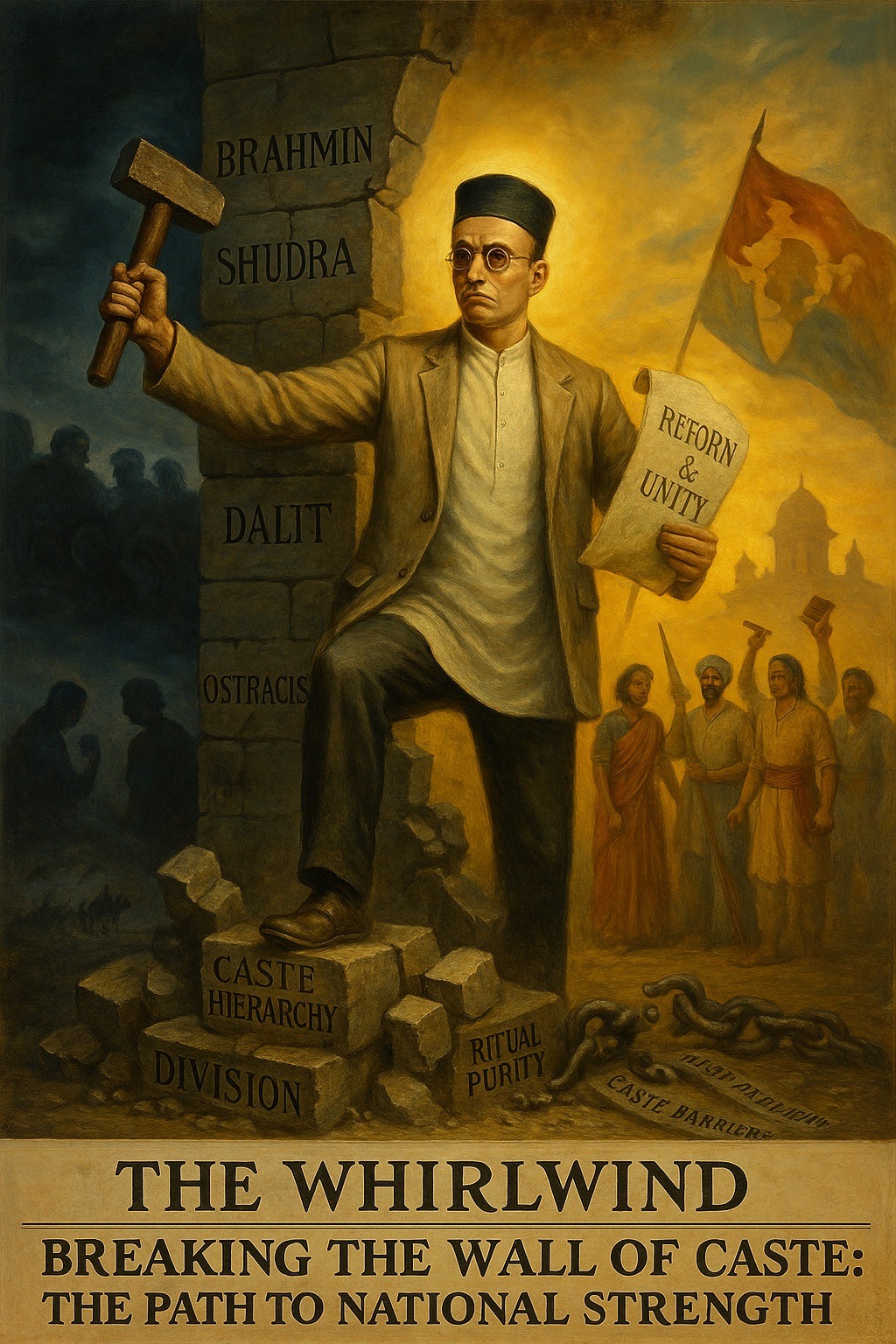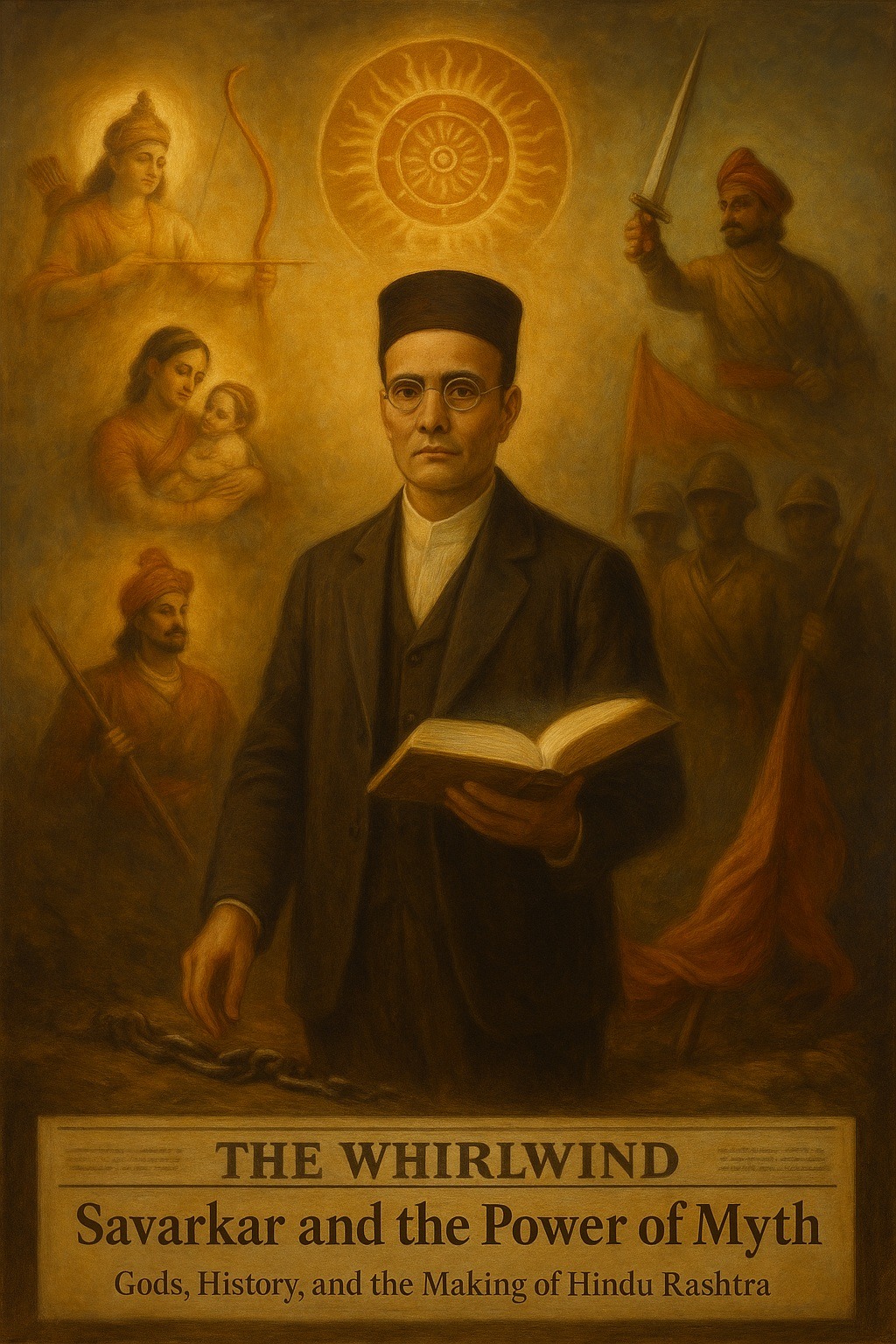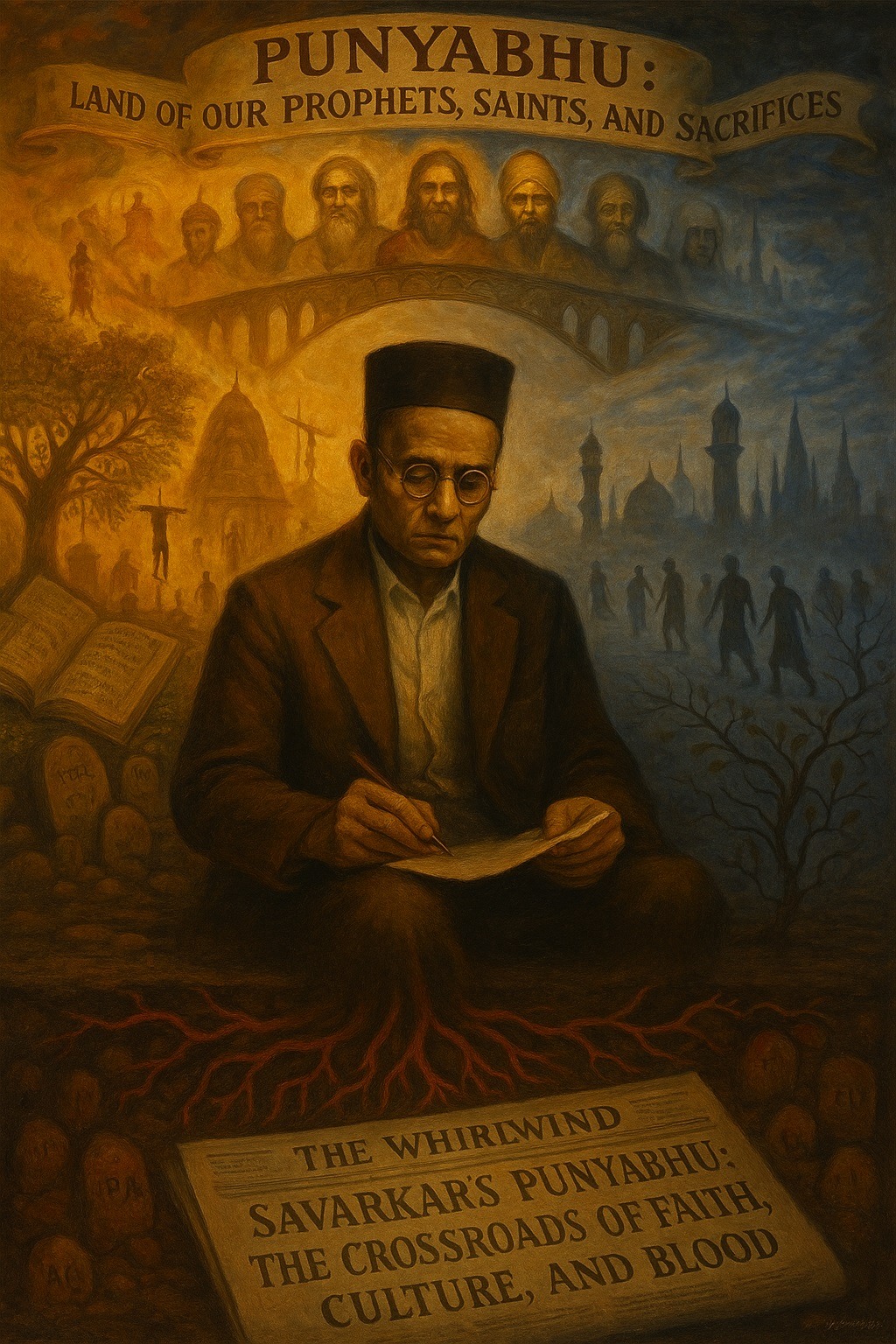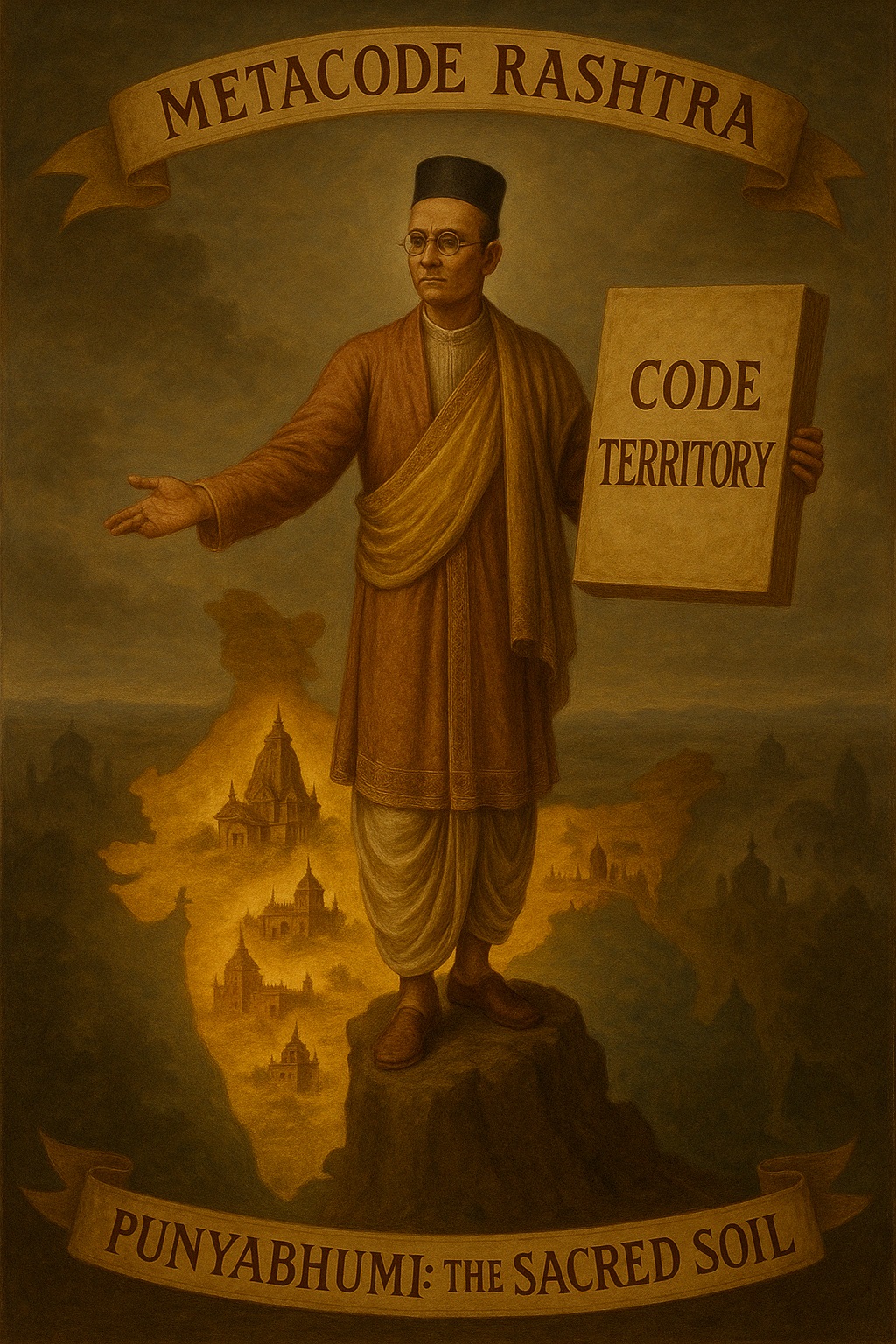Tag: Christianity
-
Savarkar’s Coding of Hindutva; Metacode Rashtra, Part 9; Code Mythos (2/20); Codeelement Hindu Pantheon When we think of Vinayak Damodar (Veer) Savarkar, we often picture the fiery nationalist, the revolutionary in exile, or the thinker behind the idea of Hindutva. But one of the most fascinating aspects of his thought is how he used myth…
-
Savarkar’s Philosophy & Worldview , Part 7; Savarkar’s Agnosticism, (3/4) In the ongoing exploration of Vinayak Damodar (Veer) Savarkar’s agnosticism, one of the most intriguing and misunderstood concepts is his use of the term Punyabhu or Punyabhumi, often translated as “Holy Land.” This term has sparked significant debate, with both critics and supporters often misinterpreting…
-
Savarkar’s coding of Hindutva; Metacode Rashtra, Part 4; Code Territory (3/6) The concept of Punyabhumi, or “sacred land”, is central to Vinayak Damodar Savarkar’s definition of the Hindu Rashtra. While he acknowledges the geographical and territorial aspect of the nation (Pitribhu), he further elevates it by embedding a religious dimension, defining it as a “sacred…





